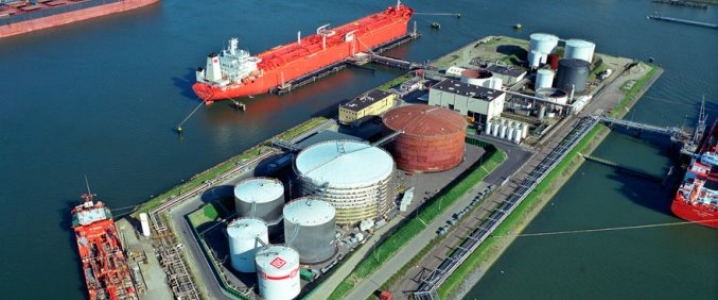It’s too early to declare winners and losers over increasing trade tensions between the U.S. and China. In fact, trade disputes are never a zero-sum game with clearly defined winners and losers, but do have significant economic and even geopolitical collateral damage.
However, Beijing’s retaliatory threat to impose a 25 percent duty on U.S.-sourced LNG could benefit Australian LNG projects. Peter Botten, managing director at Australian Stock Exchange (ASX)-listed Oil Search Ltd. agrees. He told Bloomberg news on Tuesday that the China-U.S. trade war could be a blessing for his company.
He said that his company [referring to the possible trade tariffs] “would take the positives when they come.” He added, however, that a trade war is not good for the world economy as a whole, but for an LNG outlet, especially into a key Chinese market, “I think we are in good shape and certainly it gives us some advantage over US supplies.”
Oil Search is a partner in the ExxonMobil led $19bn PNG LNG project. The project came online in mid-2014 and started shipping LNG to markets in the Asia-Pacific region, which accounts for 72 percent of all global LNG demand. By 2017, the project was producing some 8.3 million tonnes of LNG, an increase of 20 percent from the original design specification of 6.9 million tonnes per annum (mtpa).
On Monday, Woodside Petroleum’s CEO Peter Coleman said that if China follows through with tariffs on U.S.-LNG, “it will drive buyers to look somewhere else because of a period of uncertainty.” Related: U.S. Sanctions Wreak Havoc On Russia’s Oil Industry
He said that Chinese buyers will go out into other markets, though it the past the country was focusing on U.S.-LNG, adding that there are some generally positive things for a company like Woodside given its proximity to Asian markets. He said in the long term the tariffs could have some implications on oil prices.
“But, certainly in the short-term it maybe some positives for us.”
Woodside is Australia’s biggest oil and gas explorer. Last week, the Perth-based company announced that its first-half net profit rose 6 percent. It raised its 2018 production outlook after strong performances from its Wheatstone and Pluto LNG projects. For the 2018 fiscal year, Woodside said it now expects production between to 87 million barrels of oil equivalent (MMboe) to 91 MMboe from an earlier outlook of 85 MMboe to 90 MMboe.
Too early to call
Chinese tariffs on U.S.-LNG would not only have a negative impact on the American LNG industry, causing a shift in global LNG markets, but could harm China as well. China, to date, has procured American LNG cargoes on the spot market. China is the second largest global buyer of LNG, bypassing South Korea last year. Japan remains the global leader in LNG imports. Related: China Slaps 25% Tariff On U.S. Oil Products
However, it remains to be seen if Beijing will actually push through with its LNG tariff threat. A couple of reasons that would cause Beijing to balk on this specific threat is its insatiable gas demand. Beijing has mandated that gas make up at least 10 percent of the country’s energy mix by 2020, with further earmarks by 2030. Last year, Beijing stepped up its plans by prematurely taking more coal fired power plants offline and stepping up industrial gas usage, resulting in an embarrassing shortage of the fuel in much of northern China during the country’s coldest winter months. As a result, key industries were temporarily shut down to re-divert gas supply to residential users.
Even if Beijing does press though with its LNG tariff threats, the immediate impact on U.S.-LNG exports will be limited. The biggest hit, which is already unfolding, will be on the spot market. Long term, new American LNG projects seeking funding for their massive CAPEX projects will be impacted if they are unable to either secure Chinese funding or sign up Chinese firms for long-term off-take agreements.
Given China's still growing need for gas supply, the topic could be a key part of renewed trade talks between the Washington and Beijing this week - though nobody is holding their breath over any major breakthroughs.
The talks between mid-level officials from both countries aren’t expected to draw in senior decision-makers and are predicted only to result in a joint statement of productive discussions, a person familiar with the agenda said. The discussions will touch on the major friction points, ranging from intellectual property protections to re-balancing trade, the source added.
By Tim Daiss for Oilprice.com
More Top Reads From Oilprice.com:
- Saudis Officially Call Off Aramco IPO
- Oil Prices Jump On Major Crude Draw
- Spending Boost Fails To Raise Production In The Permian


















